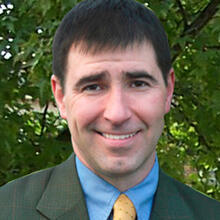Wal-Mart squeezed, Saks "full-priced selling at record levels"
From NY Times:
Wal-Mart, the country’s biggest retailer, said it had posted a quarterly increase in sales at stores open at least a year after nine consecutive quarters of declines in that important measure. But its third-quarter profit took a hit as the retailer chose not to pass on all of its price increases to consumers.
Company executives said they were not confident that Wal-Mart shoppers could afford more expensive goods.
“Our customers are still feeling pressured to reduce expenses wherever they can,” said William S. Simon, president and chief executive of Wal-Mart United States. “Cost increases in numerous categories were not passed on to our customers in the form of increased prices.”
At the other end of the retail spectrum, Saks said Tuesday that its revenue had risen 5 percent, to $692.3 million, from the same quarter a year ago. Its same-store sales, sales for stores open at least a year, rose 5.8 percent.
“Full-price selling is at record levels,” Mr. Sadove said. “We’re now in a less promotional environment than we were before the recession.” At Saks, profit fell by 51 percent, to $17.8 million, in the quarter. But that was a tough comparison with the third quarter of 2010, when profit was pumped up by a gain related to tax reserves."
Two Americas in two economies. I see the same thing here in Dayton between the upscale and average grocery store -- both venerable locally owned businesses. From the products to the expressions of the shoppers and clerks...two different worlds. We were once held together in a domestic economy. Now just miles apart we face separate fates.
***
National economies no longer hold us together. Our political communities no longer forge us together in a shared fate. Politics no longer provides a ready means for solidarity accross such divides. I wonder how solidarity can be fostered in such a divided economy.
Please share comments about communities and especially about Churches that are successfully supporting solidarity accross these divides.








Do people want everybody to be on the same level?If that were the case the Africans and Chinese and Indians and Latino's would have a major gripe at those who go to Wal-Mart.In that scenario those people are the "Rich".
Economics is dirty and always has been.
The Bible is littered with the concept of inequality and every period of history in every direction can say the same.
There may be some noble gestures in helping one another and everybody looking out for those less fortunate than ourselves but they will never be the norm.
"Where your riches are there your heart will be too" , one of the few statements of Jesus that Nietzsche readily endorses.where are our riches?.Do we harbour a secret hatred of those better off than us?. Can we rejoice in simple things and as Ignatius would have us give thanks to God for the food in our stomach and the roof over our head and the bed that we may rest in.I have seen enough nights on cold benches to feel a great solidarity with those who are permanently homeless.Those who shop in Wal-Mart or anybody who is suffering the indignity of buying cheap toilet roll will never evoke my tears .
When we can find love in our heart for a banker we will know that Jesus is still at work and the wheel is still in spin!
Regarding "...the 1% gain(ing) in leaps and bounds and the 99% flounder," two facts:
-Over the most recent 8-year stretch where complete statistics are available from the government, ending in 2005, the average US citizen in the top 1% had an income decline of -26%. That is a greater decline than the average of the 99%.
-Walmart, the most successful retail company in the world as measured by sales (Do uncreative and slow to react CEO's build the greatest retail company in the world?), as you can see from the article, is struggling mightily to not pass on price increases to customers they know are themselves struggling. They are satisfied working with tiny profit margins. Low income earners need the increased purchasing power that Walmart provides them now more than ever.
-As of Y/E 2010, other than a few tax havens such as Guernsey or oil-enriched economies such as Qatar and Norway, no country in the world had as high an average per capita income as here the US at around $47K. Germany? Way behind at $36K. Granted those numbers are on decline as we devalue our currency and flounder under poor leadership from the top, but that is correctable in Nov 2012.
A large, if not the largest, chronic problem threatening our economy, as any thoughtful person can easily deduce, is a disastrously expensive and horribly performing public school system dominated by monopoly corporate union power, led by the NEA. We have dropped all the way into the 3rd quartile of OECD nations. Despite the high cost of US education, we provide the fewest school days and classroom hours of any of the 28 OECD nations. Long term, the job any CEO faces in outcompeting international competition with decades of undereducated workers is a losing battle.
Loyola Marymount has just released a study which demonstrates that 98% of students attending inner city parochial schools graduate and go on to further education. The number for the comparable public schools is around 65%. Other than opposing the killing of the unborn, Catholics can offer no greater social justice initiative than expanding such opportunities as Loyola here documents to our inner city children. That can be accomplished with vouchers.